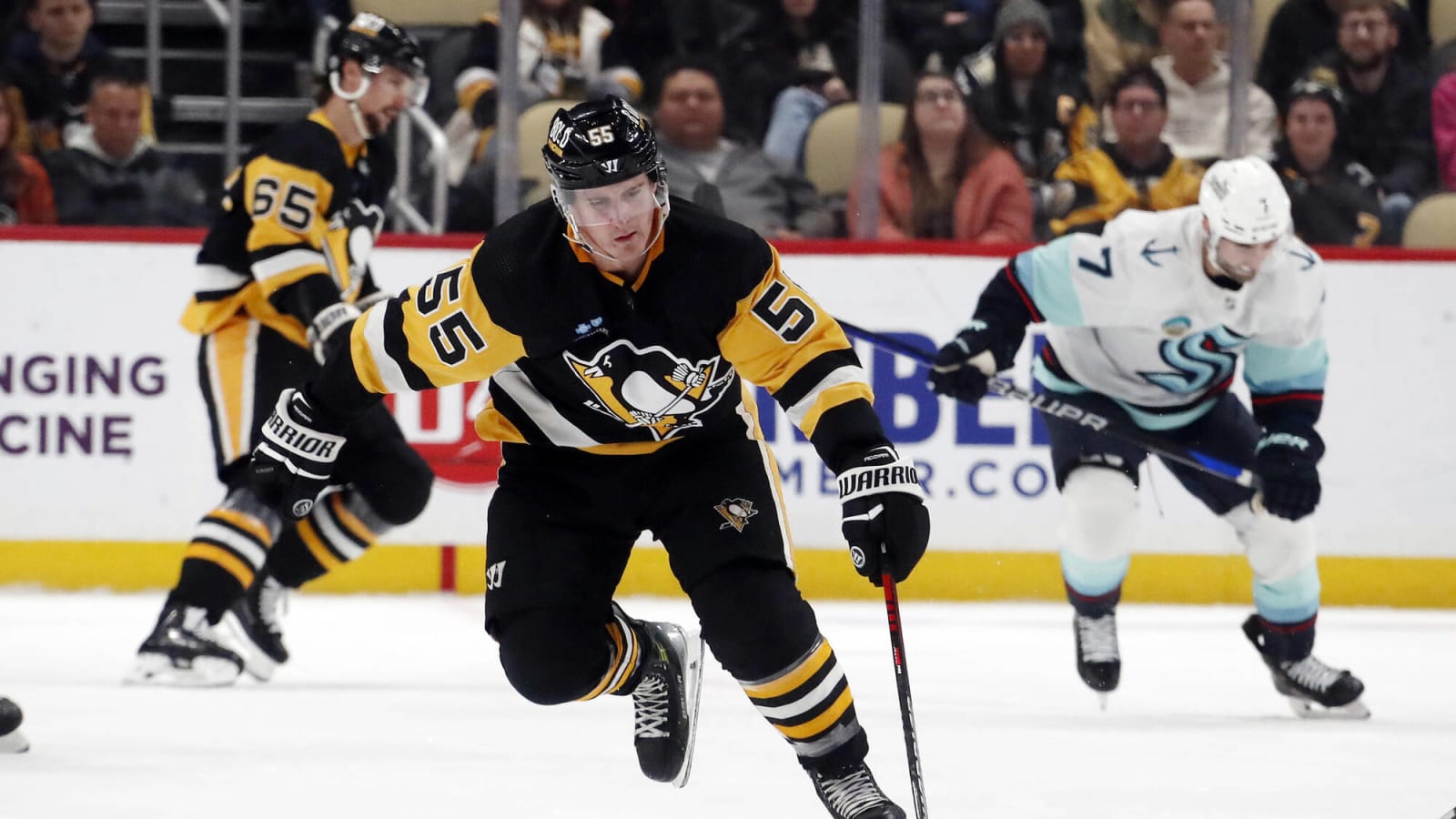
Just how much of a makeover Kyle Dubas will give the Pittsburgh Penguins’ roster before next season isn’t clear.
It also isn’t certain how much Dubas will emphasize any of the three sources of fresh talent — trades, free agents and promotions — available to him.
He’s utilized all three during his first year as the team’s president of hockey operations and general manager, and how Dubas proceeds in coming weeks might be influenced by the domino effect some moves could have. For example, trading a player with a hefty contract could free some unexpected money to spend on free agents; conversely, a big-ticket player might have to be dealt if Dubas invests heavily in a high-priced free agent or two.
Here’s a look at his primary free-agent signings (from outside the organization) during his first year on the job.
Noel Acciari
Contract terms: Three years, $2 million salary-cap hit.
Why he was signed: To add a physical presence to the fourth line and to kill penalties.
How he worked out: Acciari did exactly what the Penguins were hoping for; he just wasn’t around to do it often enough. Injuries, which have been an issue throughout his career, forced him to sit out 27 of the Penguins’ 82 games.
Lars Eller
Contract terms: Two years, $2.45 million cap hit.
Why he was signed: To be the No. 3 center and to kill penalties.
How he worked out: Eller turned out to be something of a bargain, effectively handling all of the duties he was expected to and eventually working his way onto the No. 1 power-play unit. What’s more, he and Marcus Pettersson emerged as the team’s public consciences, candidly discussing the Pittsburgh Penguins shortcomings and failings when the need arose.
Ryan Graves
Contract terms: Six years, $4.5 million cap hit.
Why he was signed: To provide a defensive presence on one of the top two defense pairings, opposite either Kris Letang or Erik Karlsson.
How he worked out: Some might view Graves’ season as an unmitigated disaster. Others might not be so charitable. Graves earned a reputation as a defensive stalwart during stints with Colorado and New Jersey, even though he didn’t play as big as he is (6-foot-5, 220 pounds), but did serious — if not irreparable — damage to that perception during his first season with the Penguins. It will be interesting to see if Dubas tries to trade Graves (not that he’d bring much of a return) or gives him a shot at redemption here.
Vinnie Hinostroza
Contract terms: One year, $775,000 cap hit.
Why he was signed: To provide NHL-caliber depth, possibly contend for a bottom-six job.
How he worked out: Hinostroza never really came close to securing a steady spot on the major-league roster, but made it into 14 games with the Penguins. He’s the kind of journeyman who tends to switch teams on a regular, even annual, basis, looking for the situation most favorable to sticking in the NHL.
Alex Nedeljkovic
Contract terms: One year, $1.5 million cap hit.
Why he was signed: To be No. 1 goalie Tristan Jarry’s backup.
How he worked out: Nedeljkovic revived his career — and put himself in position to earn a hefty raise on the contract he’ll sign this summer — with a solid performance that was highlighted by him supplanting Jarry as the Pittsburgh Penguins’ go-to goaltender during their late-season push for a playoff berth.
Matt Nieto
Contract terms: Two years, $900,00 cap hit.
Why he was signed: To bolster the Penguins’ bottom-six.
How he worked out: Nieto was a virtual non-factor because of a knee injury that required surgery; he played in just 22 games, none after Nov. 30. He’s a capable defensive forward and penalty-killer when he’s in the lineup, although it remains to be seen whether his surgery will have a lingering impact on his career.
Jesse Puljujarvi
Contract terms: Two years, $800,000 cap hit.
Why he was signed: To see if he could live up to the potential that has largely gone unrealized.
How he worked out: Puljujarvi displayed admirable commitment in coming back from having both hips surgically replaced in 2023, but showed only flashes of the skills that made him the fourth player selected in the 2016 draft during his 22 appearances with the Penguins. He could be an interesting presence at training camp, though.
Ryan Shea
Contract terms: One year, $775,000 cap hit.
Why he was signed: To add defensive depth.
How he worked out: Shea spent most of the season in Wilkes-Barre before teaming with Jack St. Ivany during the final weeks of the season to form a capable No. 3 pairing. Their generally solid play during those high-stakes games should put them in good stead heading into training camp — assuming Shea re-signs with the Pittsburgh Penguins.
Radim Zohorna
Contract terms: One year, $775,000 cap hit.
Why he was signed: To provide organizational depth, possibly challenge for a bottom-six job.
How he worked out: Zohorna looked pretty much the same as he has since the Penguins signed him as an undrafted free agent in 2020 — like a borderline NHLer who’s capable of playing all three forward positions, but not proficient enough in any of them to secure steady work at this level.
More must-reads:
- Three takeaways as Bruins force Game 6 to keep season alive
- Stars center matches Gretzky feat as Dallas pushes Avalanche to brink
- The 'Super Bowl starting QBs' quiz
Breaking News
Customize Your Newsletter
 +
+
Get the latest news and rumors, customized to your favorite sports and teams. Emailed daily. Always free!

